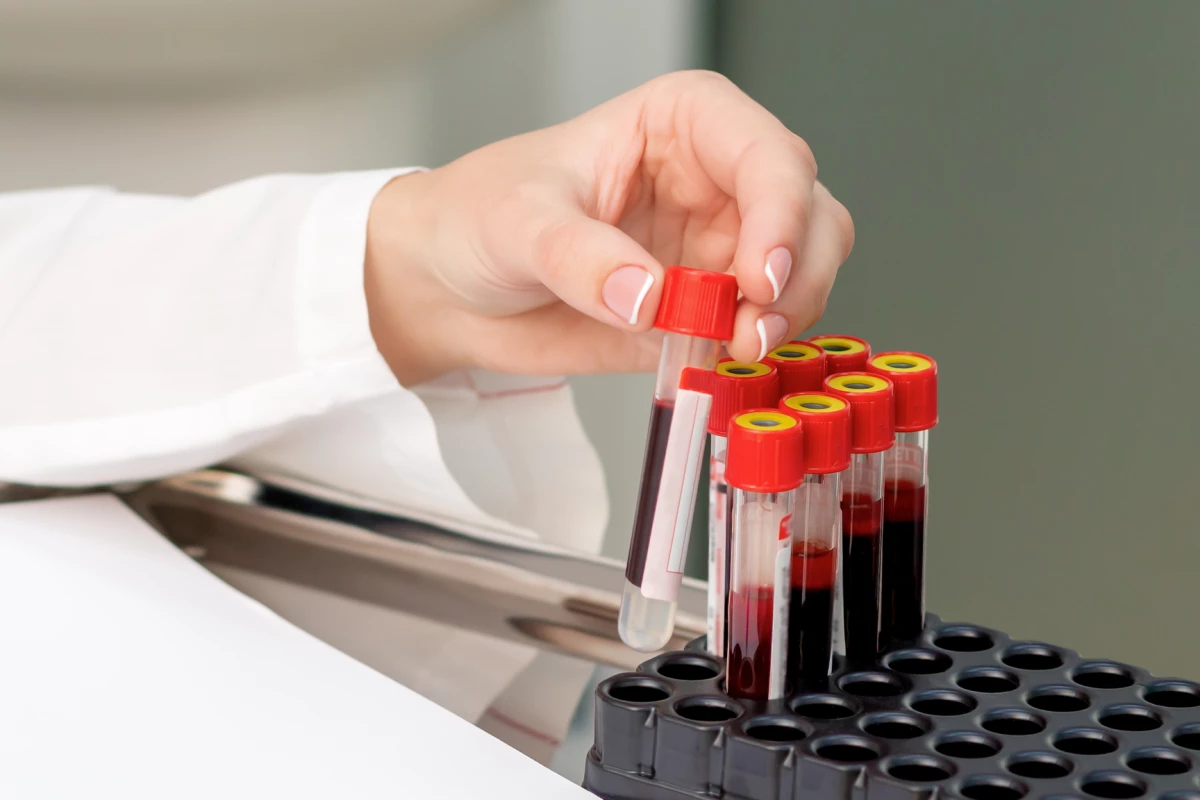Researchers from the Indiana University School of Medicine are one step closer to an objective clinical blood test for mood disorders. A robust new study is describing the development of a panel of blood-based biomarkers that can distinguish between depression and bipolar disorder, as well as measuring a person’s future risk of developing these conditions.
For well over a decade Alexander Niculescu and a team of scientists have been looking for patterns of blood-based gene expression biomarkers correlating with a number of conditions that are currently impossible to objectively diagnose. One of Niculescu’s recent published papers described a pattern of RNA biomarkers that could effectively identify patients most at risk of developing post-traumatic stress disorder (PTSD).
“We have pioneered the area of precision medicine in psychiatry over the last two decades, particularly over the last 10 years,” explains Niculescu. “This study represents a current state-of-the-art outcome of our efforts. This is part of our effort to bring psychiatry from the 19th century into the 21st century.”
His newest study, published in the journal Molecular Psychiatry, focuses on mood disorders. More specifically, the research was interested in whether blood gene expression biomarkers can distinguish between depression and bipolar disorder.
The first phase of the research involved taking several blood samples from a large cohort of adults over several years. This enabled acute mood states to be correlated with changes in blood biomarkers. Eventually the researchers homed in on 26 specific gene expression biomarkers that best linked with depression, bipolar disorder and mania.
The researchers then validated this panel of biomarkers in an independent cohort, verifying the prospective blood test can effectively distinguish between depression and bipolar disorder, as well as quantifying the acute severity of a patient’s current mood disorder.
More than one-third of the genes tracked in the final panel are known to influence a person’s circadian clock. Niculescu says this possibly sheds light on why mood disorders are so deeply entwined with disrupted sleep.
“That explains why some patients get worse with seasonal changes, and the sleep alterations that occur in mood disorders,” Niculescu adds.
It may be several years before this kind of blood test for depression reaches clinical use, but the promise of these novel diagnostic tools points towards an incredible future of personalized precision medicine. These blood tests could not only help clinicians objectively diagnose conditions previously only detected through subjective self-reporting, but they may help match a patient to a medication that would work best for their specific condition.
Niculescu and his team also look to a future clinical focus on preventative treatment of these mood disorders, using biomarker tests such as these to detect patients most at risk of bipolar disorder or clinical depression and delivering treatments early.
“We hope that our trait biomarkers for future risk may be useful in preventive approaches, before the full-blown disorder manifests itself (or re-occurs),” the researchers conclude in the new study. “Prevention could be accomplished with social, psychological, or biological interventions.”
The new study was published in the journal Molecular Psychiatry.




